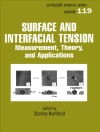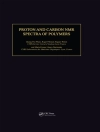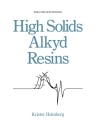MULTI-DRUG RESISTANCE IN CANCER
The book details the mechanisms underlying multi-drug cellular resistance and the targets of novel chemotherapeutic agents.
Cancer is a major killer all over the world. Even with all the progress made, chemotherapy is still the mainstay of modern cancer treatment. The progression of the cellular defeat of numerous independent anticancer drugs in terms of their chemical structure is a major barrier to successful chemotherapy. Multi-drug resistance (MDR) is a term for the fact that most cancer patients exhibit this phenomenon. According to the numbers, drug resistance carries the blame for 90% of cancer patient deaths. Refractory cancer and tumor recurrence are common outcomes of prolonged chemotherapy. Because of the prevalence of drug-resistance mutations, the difficulty of treating tumors increases and the therapeutic efficacy of drugs decreases.
Multi-Drug Resistance in Cancer: Mechanism and Treatment Strategies contains nine chapters that cover topics such as: studying the mechanics of resistance to drugs by autophagy; studies to delineate the role of efflux transporters; expression of drug transporters; resistance to targeted therapies in breast cancer; advances in metallodrug driven combination treatment for cancer; and use of natural agents for the overcoming of cancer drug resistance.
The book aims to provide the latest data on the mechanisms of cellular resistance to anticancer agents currently used in clinical treatment. It provides a better understanding of the mechanisms of MDR and targets of novel chemotherapy agents which should guide future research concerning new effective strategies in cancer treatment.
Audience
This book is written for pharmaceutical and biomedical scientists and researchers at both the bench and in the clinic who are interested in the mechanisms and strategies for overcoming cancer’s multi-drug resistance.
A propos de l’auteur
Rishabha Malviya, Ph D, is an associate professor in the Department of Pharmacy, School of Medical and Allied Sciences, Galgotias University.. He has authored more than 150 research/review papers for national/international journals of repute. He has been granted more than 10 patent from different countries while a further 40 patents are published/under evaluation. His area of interest includes formulation optimization, nanoformulation, targeted drug delivery, localized drug delivery and characterization of natural polymers as pharmaceutical excipients.
Arun Kumar Singh has completed M. Pharm (pharmaceutics) from Galgotias University, Greater Noida, India. His area of interest is in the area of nanoformulation, blockchain, Io T, machine learning, cancer, artificial intelligence, big data.
Deepika Yadav completed M. Pharm from Galgotias University, Greater Noida, Uttar Pradesh. She has published papers with reputed international publishers.












